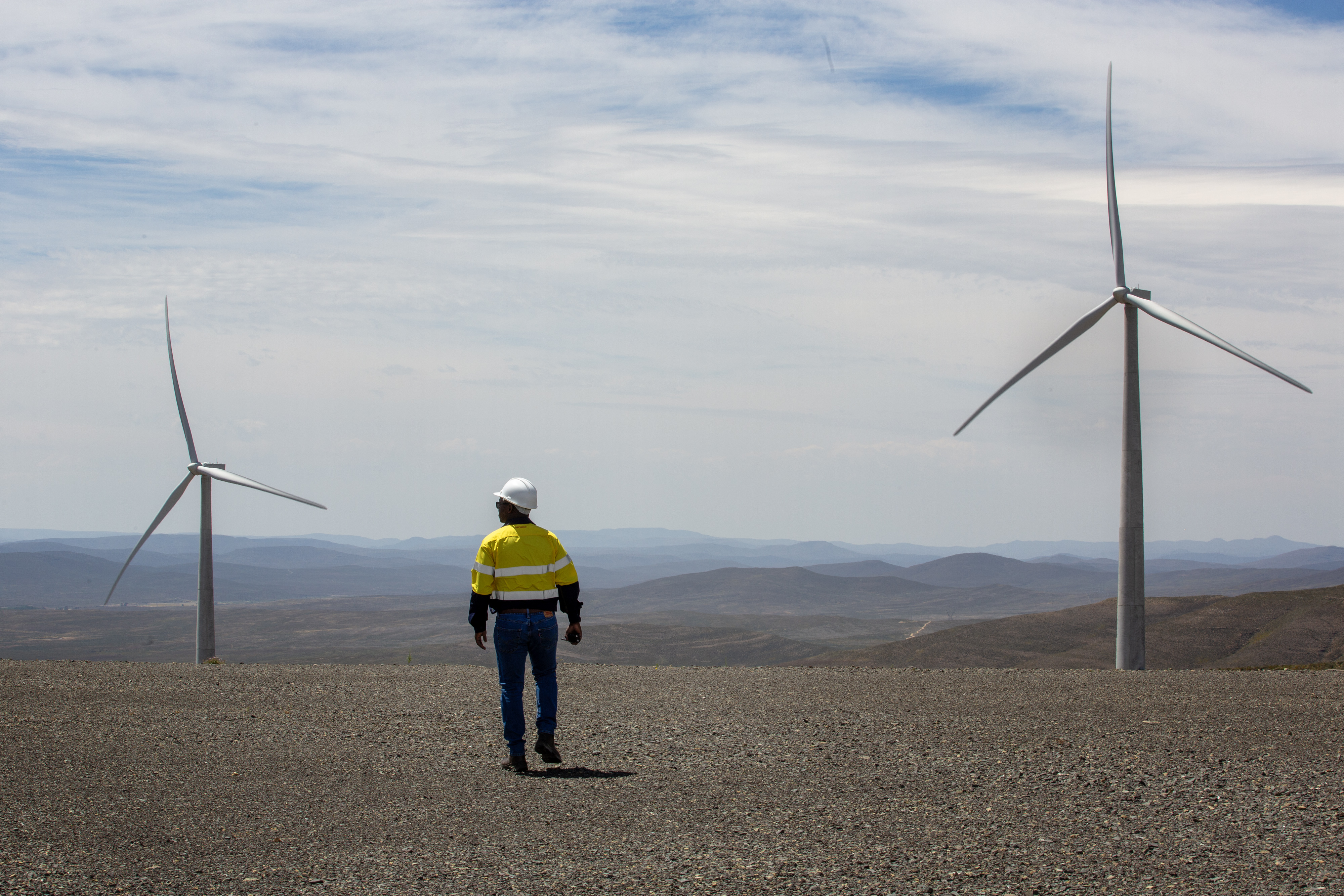The $8.5-billion funding package — pledged by developed nations nearly three years ago to bankroll South Africa’s Just Energy Transition efforts — has been slow to flow into the country or deployed into climate-friendly projects.
However, some progress, albeit at a glacial pace, is starting to be reported by National Treasury officials.
Of the $8.5-billion package pledged by the European Union, the US and UK, Germany, France, the Netherlands and Denmark, about $2.4-billion has been raised and committed to South Africa between 2022 and 2023. In the donor world, pledges are not actual money, but promises to award money over time, with the pledger (in this case, developed nations) still having to raise money themselves and award it to the recipient (in this case, South Africa).
Since the developed nations announced $8.5-billion in pledges with great fanfare at COP26 in Glasgow in November 2021, $2.4-billion has been raised from the pledges for South Africa, said National Treasury deputy director-general Mmakgoshi Lekhethe. These funds stand ready to be drawn down and used by South Africa.
Lekhethe, who spoke at the Climate Resilience Symposium hosted by the Treasury and the Presidential Climate Commission that ended on Wednesday, 17 July, said negotiations were ongoing with developed countries to raise more money from the $8.5-billion funding package.
“We anticipate that [further] funding raised for 2024 will be in the $2.3-billion and $2.4-billion mark,” said Lekhethe. The 2024 Treasury budget review gives a glimpse into the source of money from international funders that is set to be raised this year, not only to fund the just transition in the energy sector, but also the government’s overall spending programme.
The Treasury, according to the the table below, recently concluded funding agreements with the World Bank ($1-billion), German development bank KfW (€500-million), and a facility of CA$120-million from the Government of Canada was still being negotiated when the budget review was tabled in February 2024 (see table below).

The $8.5-billion funding package was considered significant for helping South Africa accelerate its transition from fossil fuels such as coal and oil to cleaner energy such as renewables. The transition would involve, among other things, embracing electric vehicles and the shutting down of coal-fired power plants. The transition is called “just” because the move to cleaner energy should happen without causing losses of jobs or livelihoods in communities that depend on coal-fired power stations, mainly in Mpumalanga.
Funding mix
The $8.5-billion package pledged by developed nations included cash (or grants), concessional and commercial loans, guarantee instruments and export credits. The funding programme has been criticised for grants being a small portion – only about 4% of the total amount — and the vast majority being loans that usually come with low interest rates.
President Cyril Ramaphosa has recently pleaded to developed nations to reconsider their funding mechanisms in favour of cash/grants, considering that developing countries such as South Africa are burdened by high debt levels and cannot afford to be saddled with more.
Treasury’s Lekhethe said there were ongoing discussions with the UK and US governments for both developed nations to provide guarantee funding instruments of nearly £2-billion and $1-billion, respectively. These guarantees are aimed at providing support to local multilateral development finance institutions such as the African Development Bank Group and Development Bank of Southern Africa, which in turn, use the guarantees to accelerate their lending/financing activities in the country on initiatives such as renewable energy projects.
Eskom, Transnet debt puts brakes on funding flows
State-owned enterprises (SOEs), mainly Eskom and Transnet, which are trying to embrace renewables for the greater good of the country’s energy and logistics security, are partially to be blamed for delays in the flow of funding from developed countries into South Africa. Eskom and Transnet, whose debt levels have blown out in recent years, are reluctant to take up more debt from the developed nations to finance things such as improvements to the transmission infrastructure (mainly for Eskom) and renewable energy and desalination plants (mainly for Transnet).
To remedy the debt take-up reluctance by SOEs, the Treasury is working on a programme to approve their requests for government guarantees. Guarantees are given by the Treasury to SOEs to help them raise new debt with banks and other funders or settle existing debt obligations. SOEs would then use the guarantees awarded by the government to secure new debt or roll over immediate repayments to a later date. If SOEs fail to pay back the debt when it’s due (or default), then the government or taxpayers would be on the hook for payments.
Edgar Sishi, Treasury’s head of the budget office, said government guarantees will help SOEs gain access to local and foreign-currency borrowings. “Those funding applications are critical for the mobilisation of financing that the SOEs will use to make investments in line with their corporate plans,” said Sishi. More updates on the government guarantee programme are set to be provided in October when the Medium-Term Budget Policy Statement is unveiled.
More criticism of the JET funding programme
The just transition programme in the energy sector has also been criticised for the lack of transparency around the recipient(s) of funding, the projects that are funded and their impact.
Researchers from the Southern Centre for Inequality Studies at the University of the Witwatersrand recently tracked where grant funding of more than R8-billion was allocated under the programme.
The researchers found that most of the grant funding went to green hydrogen, the just transition in Mpumalanga, and electricity infrastructure, with other significant proportions going towards municipalities and skills.
Read more: What happened to the Just Energy Transition grant funding?
The researchers write: “For example, of the money allocated for electricity infrastructure, almost none is allocated to actually building electricity infrastructure, whether that be new renewable generation capacity or expanded grid infrastructure, both of which are urgently needed in South Africa.
“Rather, it is spent on a mix of technical assistance, project feasibility studies, scenario projections and capacity building.” DM





